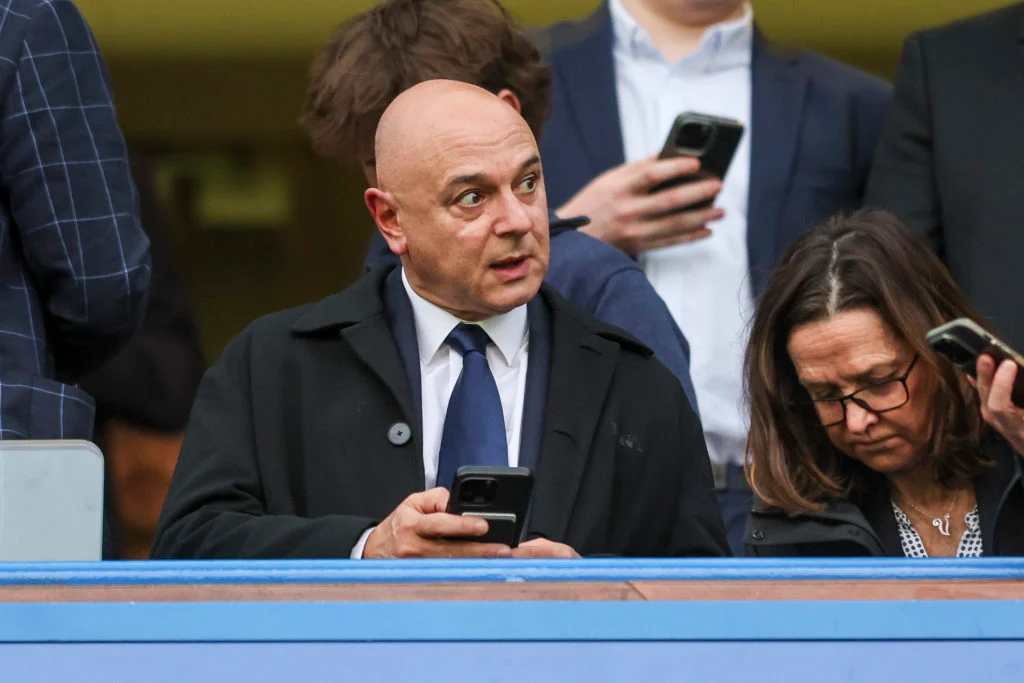
When Tottenham Hotspur announced their search for investment earlier this year, it confirmed what had long been speculated in the world of sports business.
The club, which recorded a record turnover of £550 million for the 2022-23 financial year, disclosed that chairman Daniel Levy was in discussions with potential buyers. The club’s statement was vague on the specifics of the deal, mentioning only that Levy had enlisted the help of Rothschild bank to find suitable investors.
Recent reports indicate that the ENIC regime, which currently owns Tottenham, values the club at an impressive £3.75 billion. They are reportedly open to selling a 10-15% stake in the club, mirroring the approach taken by Dynasty Equity when they invested in Liverpool last autumn. This trend reflects a growing interest among U.S.-based private equity firms in football clubs as long-term investment opportunities.
Tottenham’s allure to potential investors is substantial. With one of the fastest-growing brands in the United States and East Asia, substantial annual commercial revenues of £228 million, and a state-of-the-art stadium, Spurs present a highly attractive proposition. This appeal is evident in the interest from various private equity firms, including MSP Sports Capital, which conducted due diligence on a full takeover last year, and Liberty Media, owners of Formula 1, who have also been loosely linked with Tottenham.
In light of these developments, insights from Ipswich Town co-owner Brett Johnson offer a valuable perspective on the future of private equity investment in football. Johnson, who, alongside his Gamechanger investment group, acquired Ipswich Town in a deal worth £30 million in April 2021, has a background in private equity with investments spanning property, industry, and sport. His expertise sheds light on how private equity firms approach minority investments in football clubs.
In a recent episode of the Business of Sport podcast, Johnson discussed the ambitions of private equity investors when it comes to minority stakes in football clubs. He suggested that private equity firms are increasingly viewing sports investments as long-term holds. “I suspect a fair number of the documents on these investments show that sports are a long-term hold,” Johnson noted. “While PE is traditionally a five to seven-year investment project, investors should potentially be prepared to wait much longer.”
Johnson’s insights suggest that private equity firms are not under pressure to divest their investments quickly. Instead, they view these investments as part of a broader, long-term strategy. “I don’t think any PE firm or limited partner investors in those funds are going to want to hurt themselves by having a forced mandate to say they have to sell at this point,” he explained. This approach contrasts with more traditional investment strategies, where firms often have clear exit timelines.
The increasing interest from private equity in football clubs, such as the investments by Arctos (in Paris Saint-Germain) and Liverpool owners FSG, highlights a shift towards buying minority stakes. Johnson is confident that these investors are prepared for the long haul. “A lot of these funds are buying minority stakes. I’m really confident they will be saying to their investors that they are buying illiquid minority shares in these clubs and there isn’t an inherent market for them to trade out of it any time soon,” he said. This perspective aligns with the broader trend of private equity firms treating sports investments as long-term assets with the potential for steady appreciation.
As Tottenham explores its investment options, a minority stake may be the most appealing route for Levy, who appears reluctant to relinquish significant control over the club. A 10-15% stake, akin to Dynasty Equity’s in Liverpool, would likely have minimal impact on the operational dynamics of the club. However, the interest from potential investors such as Newcastle United director Amanda Staveley, who has raised £500 million through PCP Capital Partners, indicates that substantial sums are being considered for football investments.
Staveley’s potential involvement suggests that a significant investment could be on the horizon. While £500 million might secure a 10-15% stake, it’s conceivable that such investors would expect some degree of influence or control in return. This dynamic underscores the delicate balance between retaining control and securing necessary investment, a challenge that Levy and Tottenham will need to navigate carefully.
In summary, Tottenham Hotspur’s pursuit of investment reflects broader trends in football finance, with private equity firms increasingly viewing clubs as long-term assets. With Spurs valued at £3.75 billion and potential investors exploring minority stakes, the club is positioned as a prime candidate for substantial investment. Insights from industry experts like Brett Johnson highlight the evolving landscape of football investment, where patience and long-term strategy are key. As Tottenham continues to seek investment, the club’s future will likely be shaped by these emerging trends and the strategic decisions made by its current and prospective owners.
Leave a Reply